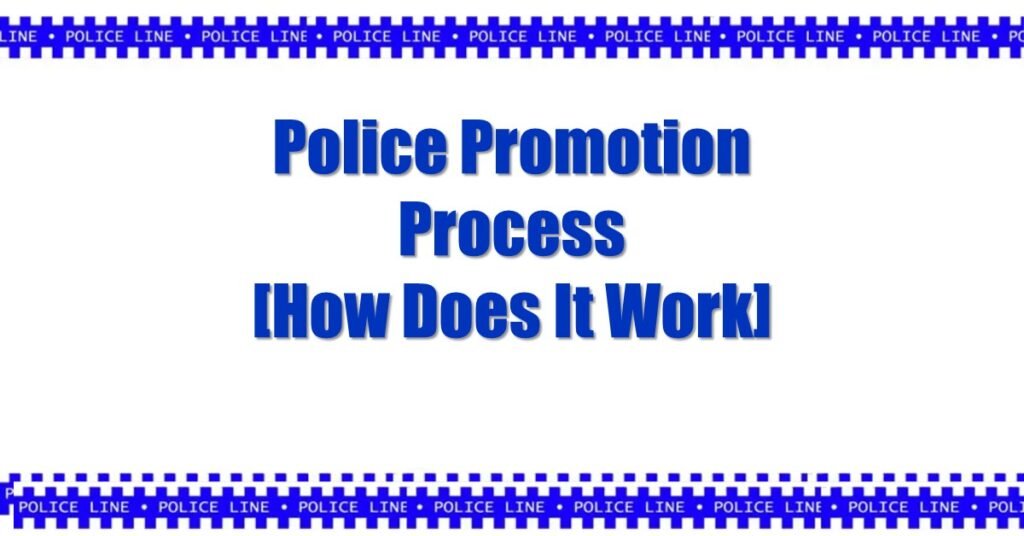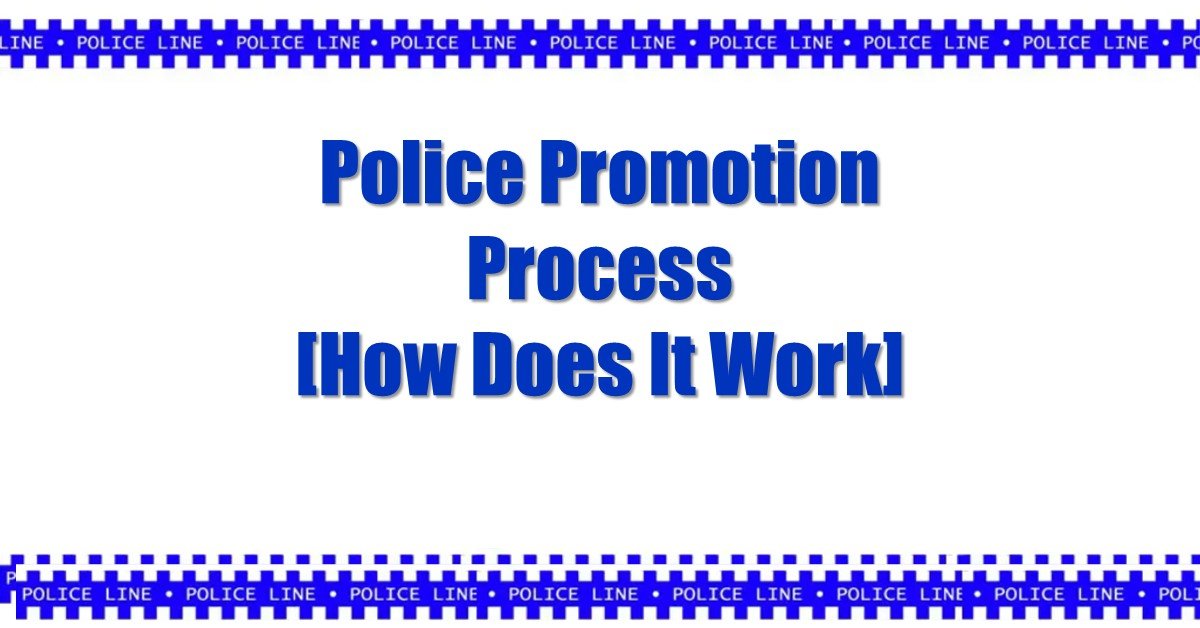From the outside, it can be hard to understand how the promotion works within the police force in the UK. But if you’re an officer looking to progress your career and gain recognition for your work, it’s important to know exactly what lies ahead. So what does the road to promotion look like? The process of gaining a promotion is difficult but doable with dedication and determination. It isn’t just about experience or qualifications either – there are lots of other factors that come into play during this process. This guide will explain everything you need to know about getting promoted in the UK police force – from understanding eligibility requirements and different roles, all the way through to advice on preparing for interviews and assessments.
So whether you’re considering applying for a higher position in law enforcement or already have your sights set on a certain role, we want to give you all the information you need to make sure you get where you want to go – and feel supported along the way!
Promotion Ranks And Responsibilities
Promotion ranks and responsibilities within the UK police force is a complex system, with officers being able to progress through several stages as they expand their knowledge and experience.

From Constable all the way up to Chief Constable, there’s a clear structure in place that outlines what each rank entails. Let’s take a closer look at these roles:
1) Constable – This is the lowest ranking position available for police officers in England and Wales, though Scotland has its own slightly different structure. Constables have basic duties such as responding to emergency calls or patrolling an area on foot or by vehicle, and are often responsible for carrying out investigations too.
2) Sergeant – Sergeants are typically seen as being more experienced than constables, having gained additional skills during their time in the role. They may be asked to provide guidance to other members of the team, manage resources such as equipment and vehicles, or act as line managers who can help develop strategies and tactics related to policing activities.
3) Inspector – Inspectors usually oversee multiple teams of sergeants and constables, acting as supervisors who maintain overall standards across operations. On top of this, inspectors also review reports from colleagues about incidents that have been dealt with previously. The inspector will decide if further action needs to be taken based on this information.
4) Chief Inspector –chief inspectors lead groups of senior officers across whole districts or boroughs; managing staff and budgeting decisions while setting objectives for individual teams. In addition to this responsibility comes accountability – meaning that any issues arising from inspection processes lie with them directly.
5) Superintendant – A police superintendent in the UK is typically responsible for managing police operations and ensuring public safety in a designated geographic area or department. They oversee teams of officers, manage resources and budgets, and work closely with community leaders and local authorities to address crime and disorder issues. Additionally, they may be responsible for implementing new policing strategies and policies.
6) Chief Superintendent – A police chief superintendent in the UK is a senior officer responsible for managing a department or area command within a police force. They oversee and coordinate the work of subordinate officers, develop and implement operational strategies, and liaise with other agencies to maintain law and order in their jurisdiction. They also act as a bridge between the police force and the community.
Check out this article for more on the police rank structure.
It’s important for those in higher positions within the police service to demonstrate strong leadership capabilities so that they can effectively handle difficult situations when needed.
Good communication skills are also essential; allowing individuals to interact efficiently with others inside and outside of the organisation whilst upholding core values throughout every task they undertake.
Overview Of The UK Police Force
The UK police force is an integral part of our society, ensuring safety and security for all citizens. It’s a vast network that encompasses many different divisions and roles – from neighbourhood policing to specialist crime investigation units. But how does the promotion process work within the police force?
Let’s take a closer look.
Promotion processes vary across each division in the UK police force, but there are some common principles that apply throughout.
The National Police Promotion Framework governs the first steps or promotion from PC to Sgt, and from Sgt to Insp.
The promotion process is a For Step process which we will go into further depth below.
Police Promotion Step One
Step One of the National Police Promotion Framework in the UK is designed to ensure that candidates are competent in their current rank before entering the promotion process.
This step establishes that the candidate is competent in their current rank, rather than assessing their potential for temporary promotion to another rank.
The process involves registering for the examination, completing a confirmation of eligibility form, and verifying that a candidate has satisfied the eligibility criteria.
The eligibility criteria include completing the probationary period, demonstrating competence in that rank through performance and development review, and adhering to the attendance management policy, among other things.
Successful candidates will be allocated to Step Two, the Legal knowledge examination.
Police Promotion Step Two
Step two of the police promotion process is also known as the legal exam.
There are two exams, one for PCs wanting to progress to the rank of Sgt. And a separate exam for substantive Sgts seeking promotion to Insp.
The examination process at Step Two is monitored and quality assured by the College of Policing’s Selection and Assessment department, which also provides results to forces and performs performance analysis of successful and unsuccessful candidates.
Chief officers of candidates who attain exceptional scores will be notified.
Failure to pass the exam will see the officer remain at their substantive rank.
There is no restriction on the number of times a police officer can retake the exam, this is at the local forces’ discretion.
Police Promotion Step Three
Step Three in the police promotion process is the assessment of candidates against rank-specific competencies and matching them to vacancies.
This step aims to assess the candidate’s potential to perform at the next rank and match the number of successful candidates to the number of expected vacancies.
The force’s senior management, in conjunction with human resources specialists, decides on the structure and techniques used in Step Three to select the appropriate candidates for the rank aspired to.
It is also the force’s responsibility to ensure they have shown due regard to the public sector equality duty in deciding which procedures to use. If a candidate has not been selected at NPPF Step Three within five years from the date of taking the NPPF Step Two (legal knowledge examination), they must return to NPPF Step One.
Forces must advertise at an early stage the method chosen to test candidates at Step Three and the RQF units used at Step Four. In all cases, candidates must be given the opportunity to develop an action plan agreed upon with their line manager and then to retake Step Three, as long as their Step Two pass remains valid.
Police Promotion Step Four
Step four in the police promotion process involves temporary promotion for a 12 month period AND completing a work-based assessment of candidates temporarily promoted to and undertaking the duties of sergeant or inspector.
The purpose of this step is to provide candidates with an opportunity to demonstrate competence in the rank they aspire to and assess candidates against the RQF assessment units with a view to achieving substantive promotion at the end of the 12-month period of the temporary promotion.
Candidates need to pass both the academic assessment and evidence of satisfactory performance in the rank before they can be substantively promoted.
At the end of the Step Four work-based assessment, if a candidate fails to achieve a satisfactory assessment in all the assessment standards and/or satisfactory performance/attendance criteria at the temporary rank, they must return to NPPF Step Three.
Benefits Of Promotion In The Police Force
Promotion within the police force is an important element of career progression and can bring many benefits to officers. It’s a great way for them to build on their skills, gain recognition, and further their careers in law enforcement. Becoming promoted also provides more responsibility and authority as well as higher salaries and opportunities for additional training.
The promotion process itself can vary depending on rank but generally takes place every year or two years, with each rank having its own set criteria that must be met before someone can advance up the ranks.
Officers will typically need to demonstrate excellence in various areas such as policing experience, leadership abilities, problem-solving capabilities, community engagement work, and technical knowledge.
In addition to this, they may have to secure support from senior colleagues or pass standardised tests related to their role.
On top of this, there’s often access to better pay grades which allow officers to enjoy greater financial security. Increased autonomy over decision-making processes offers even more control over how certain jobs are handled while developing new connections between departments gives a greater sense of belonging within the organisation.
All these factors combine together to make promotion in the police force one of the most rewarding experiences an officer could ever hope for.
Some officers will try and transfer forces in order to secure promotions.
Wrapping Up: How Does The Promotion Process Work Within The Police Force In The UK?
In conclusion, the police force in the UK is a highly respected and disciplined organisation. It requires dedicated individuals who are willing to work hard for promotion within its ranks. Promotion criteria and processes vary from region to region but all must adhere to strict guidelines that ensure only those with appropriate skills and experience can progress through the system. The rewards of promotion come in many forms, mainly increased responsibility, pay rises, and greater job satisfaction. All these benefits make it worthwhile striving for promotion as long as you meet the requirements set by your regional Police Force. Ultimately, the process of promotion can be both challenging and rewarding depending on how much effort one puts into achieving it. I would encourage anyone considering a career in law enforcement to familiarise themselves with the different levels of hierarchy available so they can understand what’s required for each role before embarking upon their journey up the ladder of success.




